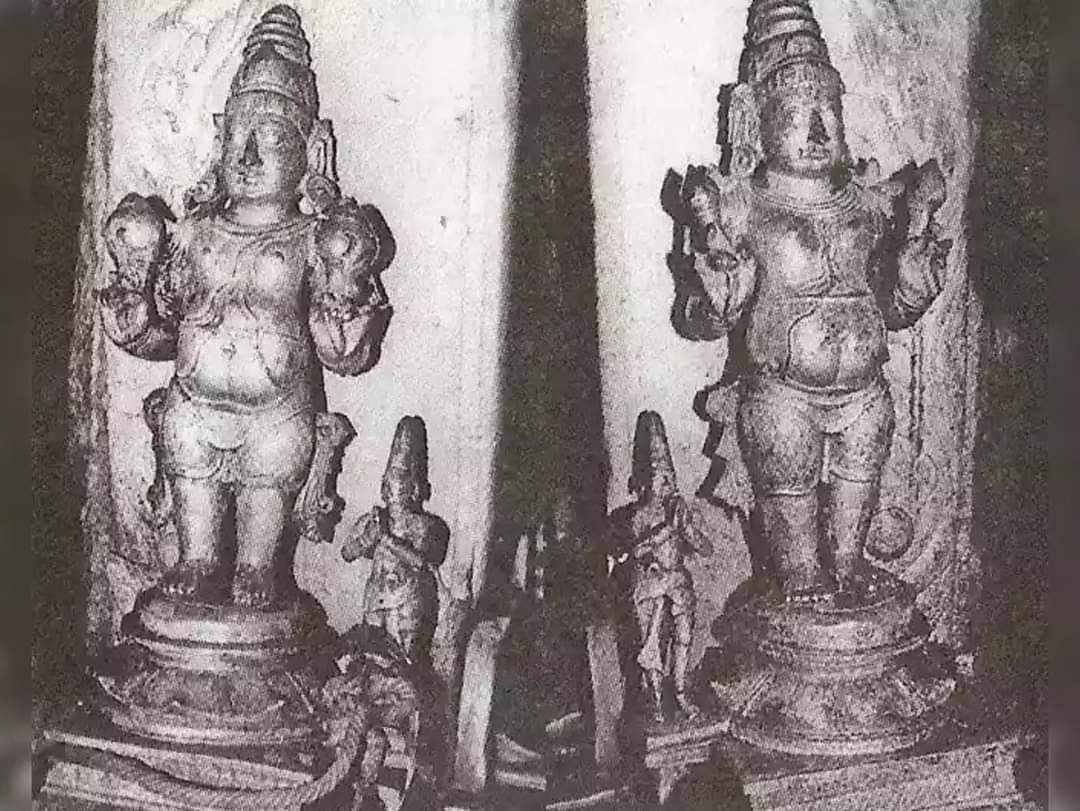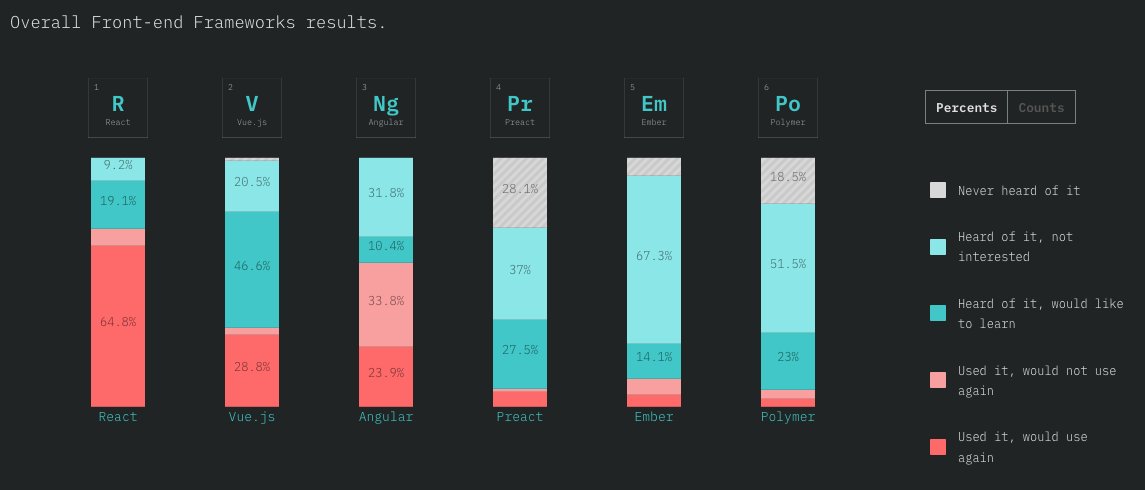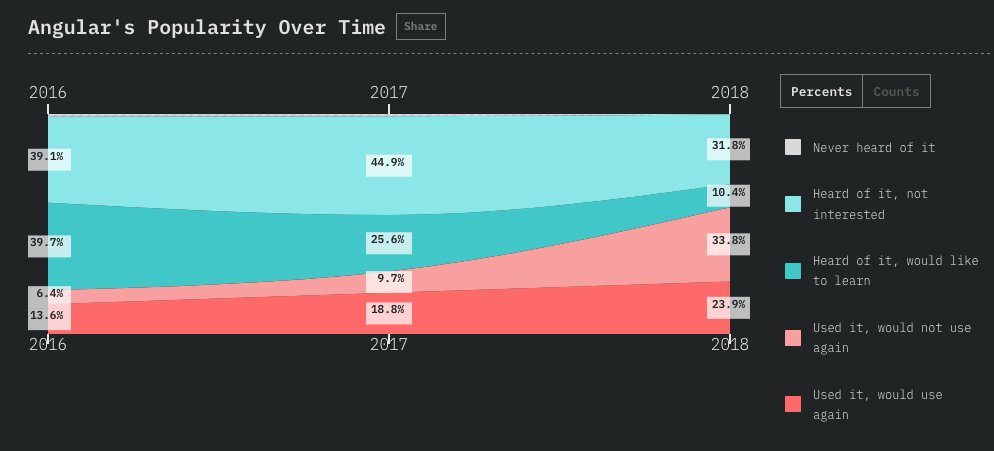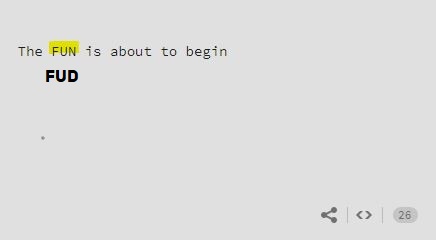Doing something > What you call it
The success of the "24 hour startup" challenge is not about startups
A thread
👇Read on
- This isn't a *insert name of type of event* (eg. startup)
- It's not meaningful to build in X amount of time
- Using the term X isn't accurate
Really, both sides tend to have a point.
Getting someone get their first taste of building something isn't to be scoffed at though.
It's longer-form than a tweet or back-and-forth on Reddit/Hacker News.
So he can actually make a nuanced point.
https://t.co/Z4ieToJ9Tw
- Constraint breeds creativity
- Shipping helps in ways you don't expect
- Empowering people to think they can achieve is the start of the journey
Would @patwalls have done so well without the "startup" in his two 24 hour startups?
Stretching the meaning of a word so that hundreds of people feel the impetus to do something that's out of their comfort zone likely outweighs some backlash from Reddit/Hacker News types
Where self-funding, bootstrapping and keeping costs low to maximise profit are core beliefs.
Does it make sense to use a term usually associated with funding and growth over profit?
Hundreds of individuals in the space contributed and used this as an opportunity to go beyond what they do in their day to day.
Great work @thepatwalls and the entire team of #24hrstartup
More from All
You May Also Like
👨💻 Last resume I sent to a startup one year ago, sharing with you to get ideas:
- Forget what you don't have, make your strength bold
- Pick one work experience and explain what you did in detail w/ bullet points
- Write it towards the role you apply
- Give social proof
/thread
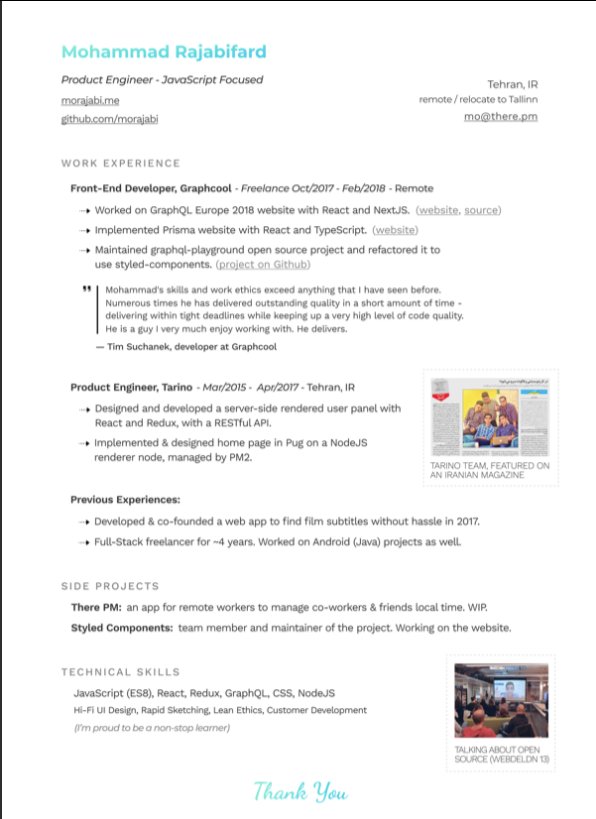
"But I got no work experience..."
Make a open source lib, make a small side project for yourself, do freelance work, ask friends to work with them, no friends? Find friends on Github, and Twitter.
Bonus points:
- Show you care about the company: I used the company's brand font and gradient for in the resume for my name and "Thank You" note.
- Don't list 15 things and libraries you worked with, pick the most related ones to the role you're applying.
-🙅♂️"copy cover letter"
"I got no firends, no work"
One practical way is to reach out to conferences and offer to make their website for free. But make sure to do it good. You'll get:
- a project for portfolio
- new friends
- work experience
- learnt new stuff
- new thing for Twitter bio
If you don't even have the skills yet, why not try your chance for @LambdaSchool? No? @freeCodeCamp. Still not? Pick something from here and learn https://t.co/7NPS1zbLTi
You'll feel very overwhelmed, no escape, just acknowledge it and keep pushing.
- Forget what you don't have, make your strength bold
- Pick one work experience and explain what you did in detail w/ bullet points
- Write it towards the role you apply
- Give social proof
/thread

"But I got no work experience..."
Make a open source lib, make a small side project for yourself, do freelance work, ask friends to work with them, no friends? Find friends on Github, and Twitter.
Bonus points:
- Show you care about the company: I used the company's brand font and gradient for in the resume for my name and "Thank You" note.
- Don't list 15 things and libraries you worked with, pick the most related ones to the role you're applying.
-🙅♂️"copy cover letter"
"I got no firends, no work"
One practical way is to reach out to conferences and offer to make their website for free. But make sure to do it good. You'll get:
- a project for portfolio
- new friends
- work experience
- learnt new stuff
- new thing for Twitter bio
If you don't even have the skills yet, why not try your chance for @LambdaSchool? No? @freeCodeCamp. Still not? Pick something from here and learn https://t.co/7NPS1zbLTi
You'll feel very overwhelmed, no escape, just acknowledge it and keep pushing.


